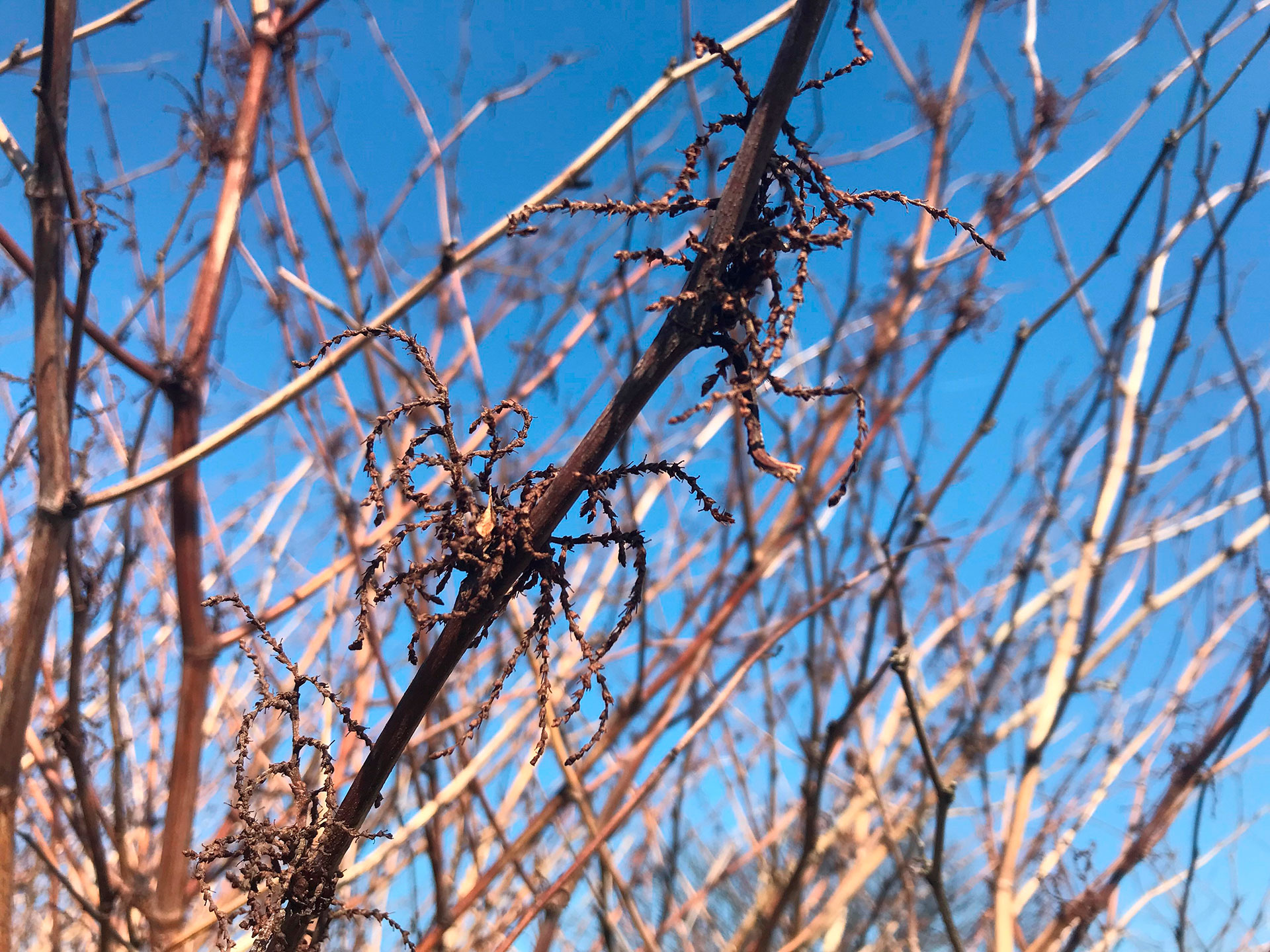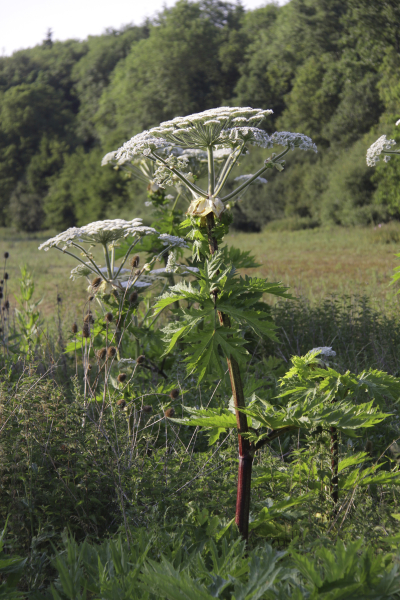 Japanese knotweed could not be more of a hot topic right now… in April of this year, Swansea University released findings from their three-year trial of nineteen control methods – of which was heavily misinterpreted by the media – headlines of ‘Japanese knotweed cannot be eradicated’ ensued. More recently, the Court of Appeal gave its’ judgement on the case of Waistell v Network Rail Infrastructure Ltd – they upheld last year’s ruling in favour or Mr. Waistell and Mr. Williams, dismissing Network Rail’s appeal. We have also had the study showing that only 19% of Brits can identify Japanese knotweed. Furthermore, research from the University of Leeds seems to be removing some sensationalism from Japanese knotweed.
Japanese knotweed could not be more of a hot topic right now… in April of this year, Swansea University released findings from their three-year trial of nineteen control methods – of which was heavily misinterpreted by the media – headlines of ‘Japanese knotweed cannot be eradicated’ ensued. More recently, the Court of Appeal gave its’ judgement on the case of Waistell v Network Rail Infrastructure Ltd – they upheld last year’s ruling in favour or Mr. Waistell and Mr. Williams, dismissing Network Rail’s appeal. We have also had the study showing that only 19% of Brits can identify Japanese knotweed. Furthermore, research from the University of Leeds seems to be removing some sensationalism from Japanese knotweed.
The conversation surrounding the ubiquitous species has been dominated by scaremongering and hysteria for a long time, and no doubt will not end in 2018 – the Daily Mail alone has referred to the species as ‘the fearsome interloper’, a ‘superweed’, ‘insidious invader’, and described gardens as ‘under siege’. This narrative has arguably led to panic amongst homeowners for years, with worries of Japanese knotweed strangling residents in their sleep, or, pushing its’ way through tarmac and brick. With a whirlwind of opinions and facts and often nonsense out there, it is understandably difficult to make sense of what we know about Japanese knotweed.
So – many articles claimed that the Swansea findings demonstrated that Japanese knotweed cannot be ‘cured’. Japanese knotweed is a plant, and the language used here just doesn’t fit – how does one cure a plant, I wonder? And indeed, language is important – the findings did show that the species could not be eradicated – a term which, in the industry, we do try to avoid – ‘management’ or ‘control’ is more appropriate when speaking of herbicidal treatment. But again, Japanese knotweed garnered interest through actual research, and scaremongering followed.
The Network Rail case has also created conversation in a different way – this case has created somewhat of a ‘case study’ in Japanese knotweed and the law. The damages awarded were interpreted slightly differently following the dismissal of Network Rail’s appeal – the court highlighted the interference with the amenity value of the land – the homeowners’ ability to enjoy their land had been diminished.
Here’s what Nick Hartley, our Managing Director, had to say on the case:
“Ebsford have been watching the case with interest and are pleased that there does appear to finally be some clarity on the situation of encroachment. It remains our opinion that landowners should take their responsibilities seriously and look to work with their neighbours in cases where Japanese knotweed is proven to have the potential to damage or diminish properties.
We do however have concerns over the ruling stating that encroachment alone can diminish enjoyment and hope that this does not lead to spurious claims against landowners who make reasonable attempts to control the issue. Japanese knotweed has such a presence throughout the U.K that a more collaborative and structured approach surely now needs to be adopted.”
Charles Lyndon, who represented the claimants, have hailed the case as ‘a victory for homeowners’ – time will tell if this case will encourage institutions such as Network Rail to take their responsibilities surrounding invasive species more seriously.
Is the narrative really changing?
One could argue that for the experts, no – a reputable Japanese knotweed contractor will not partake in the hysteria narrative of the species. But with research taking place, and the highly publicised landmark ruling in the Network Rail case, conversation around knotweed is coming to the fore, and seems to be on the whole, from a different angle to the “invasion of the alien knotweed” Daily Mail nonsense of times gone by.
Ecologists from AECOM and the University of Leeds have reportedly found no evidence that Japanese knotweed causes significant structural damage. Where does this stigma come from? A general reluctance to lend mortgages on affected properties along with RICS’ guidance on Japanese knotweed in terms of its’ proximity to built structures was based on the knowledge that the species’ rhizomes spread as far as seven metres laterally and therefore, if close enough, could damage the integrity of said built structure. Property values have been affected by this considerably. However, this new research arguably blows this out of the water.
Dr Karen Bacon of the University of Leeds said this:
“Japanese knotweed is capable of damaging built structures, but where this occurs, it is usually because an existing weakness or defect has been exacerbated.”
Will this research alleviate any of the frenzy surrounding Japanese knotweed? All research in the field should be welcomed and the discussion widened to include studies such as this – all of this will help to separate facts from scaremongering in the media, and constantly address the issues that the species does cause in a knowledgeable manner. It is ultimately our duty as a professional and reputable Japanese knotweed contractor to be honest and clear with our clients at all times – Japanese knotweed does pose many problems to biodiversity and creates a barrier to development, and these issues should be conveyed.
Lauren Tomlinson
Sales Support Executive, Ebsford Environmental Ltd
 Since 1993 Dewsbury Rangers have always been at the heart of the local community in Earlsheaton. Offering opportunities for children as young as 5 years old, who are just starting their football journey.
Since 1993 Dewsbury Rangers have always been at the heart of the local community in Earlsheaton. Offering opportunities for children as young as 5 years old, who are just starting their football journey. Established in the early 1890’s, Altofts AFC is the largest non-league club in Wakefield.
Established in the early 1890’s, Altofts AFC is the largest non-league club in Wakefield.


 Giant hogweed – contact with this species can cause severe burns.
Giant hogweed – contact with this species can cause severe burns. Japanese knotweed could not be more of a hot topic right now… in April of this year, Swansea University released findings from their three-year trial of nineteen control methods – of which was heavily misinterpreted by the media – headlines of ‘Japanese knotweed cannot be eradicated’ ensued. More recently, the Court of Appeal gave its’ judgement on the case of Waistell v Network Rail Infrastructure Ltd – they upheld last year’s ruling in favour or Mr. Waistell and Mr. Williams, dismissing Network Rail’s appeal. We have also had the study showing that only 19% of Brits can identify Japanese knotweed. Furthermore, research from the University of Leeds seems to be removing some sensationalism from Japanese knotweed.
Japanese knotweed could not be more of a hot topic right now… in April of this year, Swansea University released findings from their three-year trial of nineteen control methods – of which was heavily misinterpreted by the media – headlines of ‘Japanese knotweed cannot be eradicated’ ensued. More recently, the Court of Appeal gave its’ judgement on the case of Waistell v Network Rail Infrastructure Ltd – they upheld last year’s ruling in favour or Mr. Waistell and Mr. Williams, dismissing Network Rail’s appeal. We have also had the study showing that only 19% of Brits can identify Japanese knotweed. Furthermore, research from the University of Leeds seems to be removing some sensationalism from Japanese knotweed.





